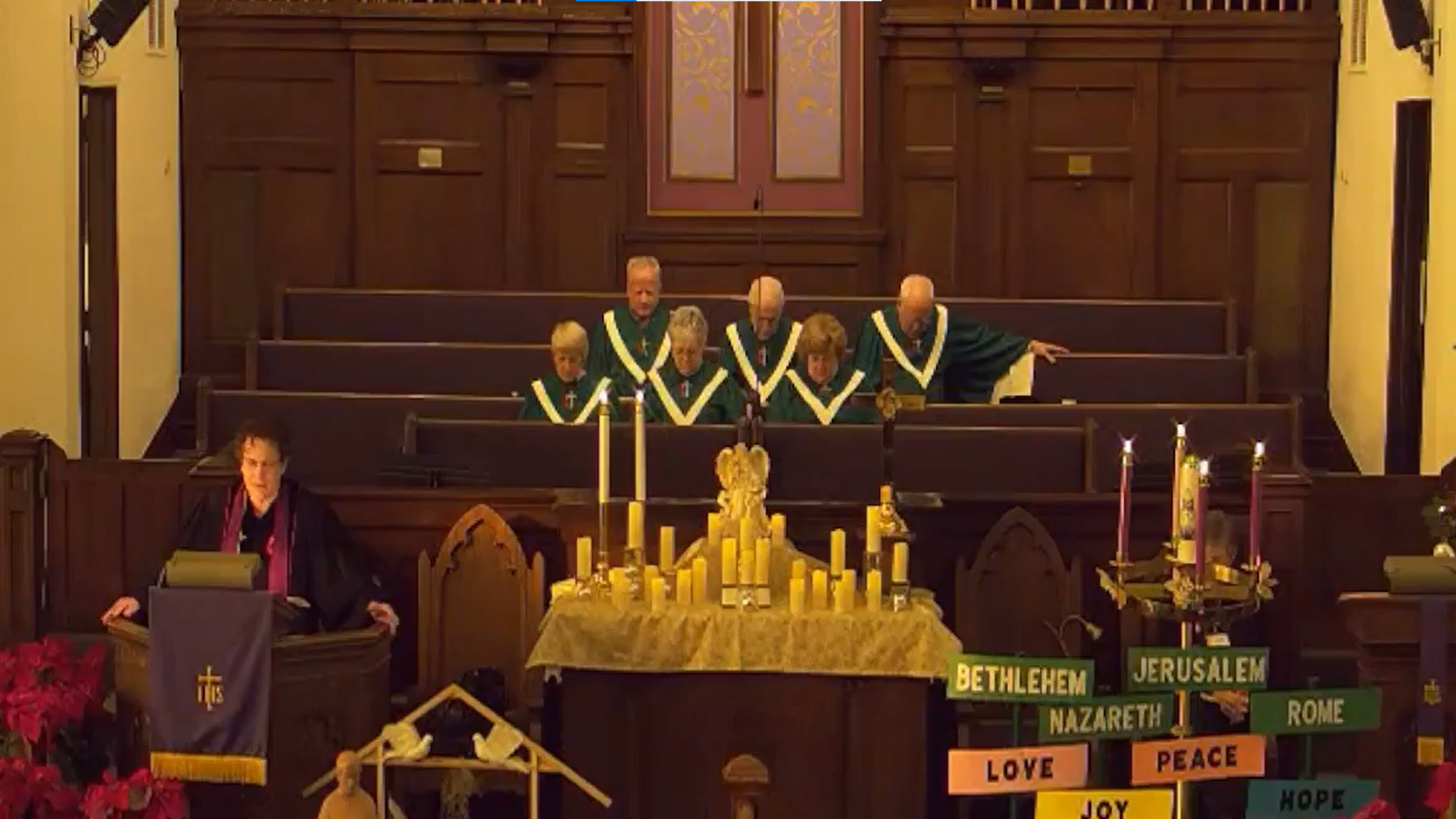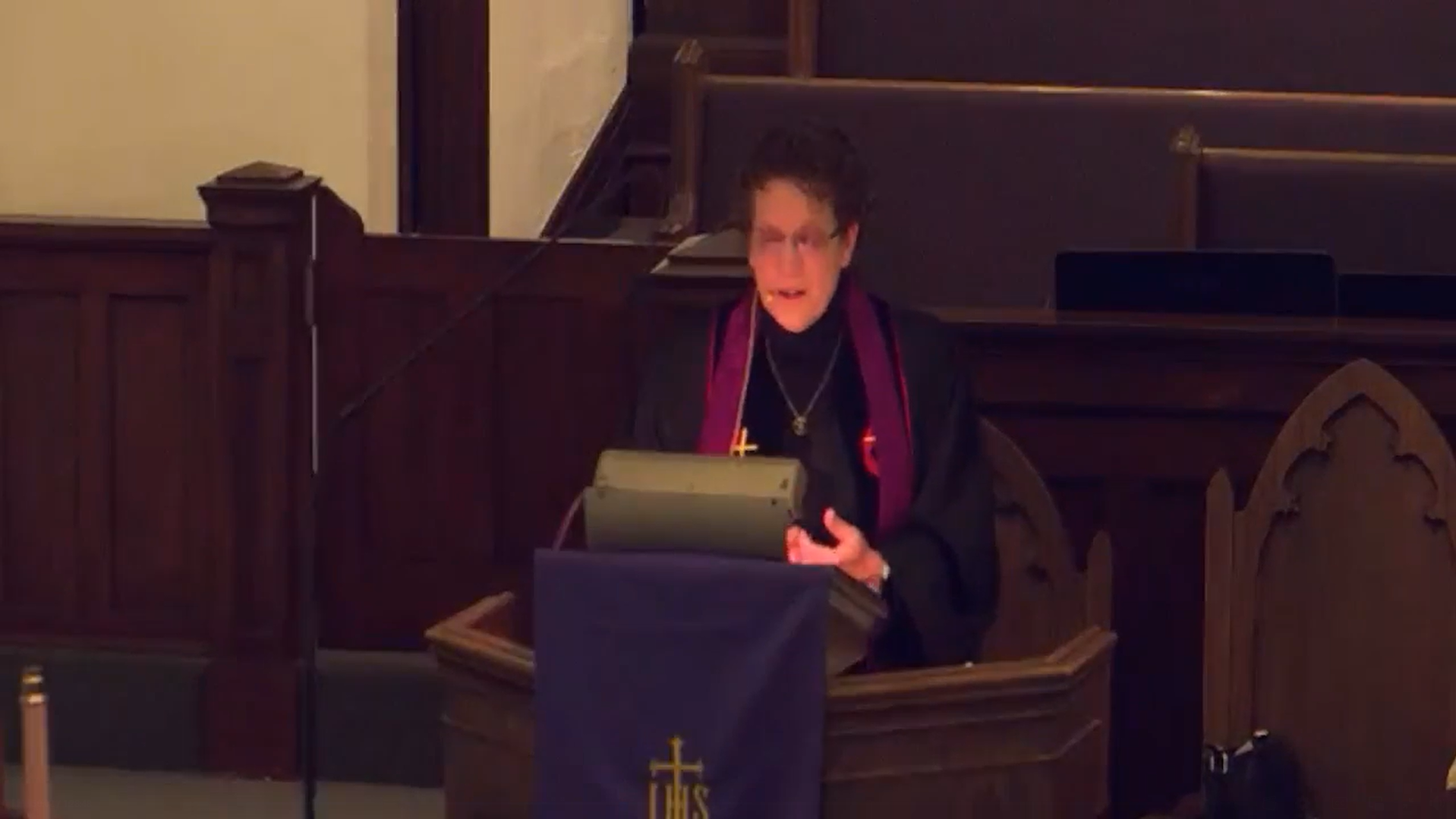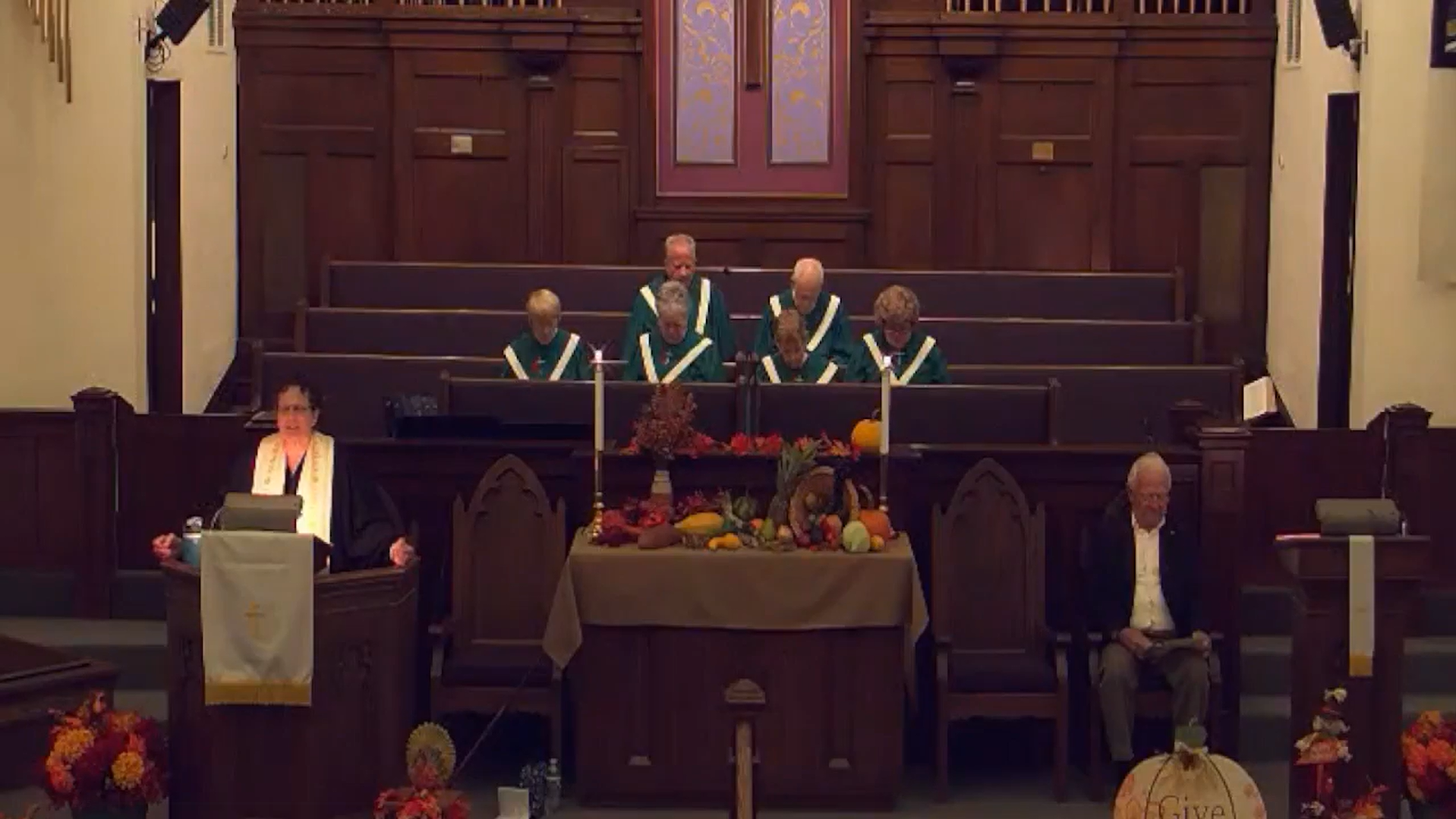
Jesus’ parents were ordinary, hardworking people – a carpenter and his wife who hoped to make a modest living in a society that mocked them just because of their ethnicity. They were poor, and their status would never be equal to the Jewish or Roman elite.

Luke didn’t have to mention the decree in his story. None of the other Gospel writers mention it. But Luke is also the author of Acts, which introduces us to Paul, who ultimately travels to Rome and establishes a church there. The Gospel of Luke has a purpose, and one of those purposes is to show us that it is possible to live a life of faith within the restraints of a powerful and authoritative government.

At this point, I know, it’s easy and perhaps fair to protest that while God may indeed know our needs, certainly many – far too many! – needs go unmet in this world. But I wonder: is the poverty that characterizes too much of our world caused by God not providing enough resources or is it a result of too many of us hoarding and misusing these resources because we are dominated by a sense of scarcity and inadequacy?
Browse all of the Sermons and Messages
Quite often pastors find themselves in the role of officiating funeral services. The purpose of these services is to honor and celebrate a person’s life, and in all the services I have been involved in, I have yet to encounter one in which we talk about how many things a person was able to accumulate throughout his or her life.
Have you ever wondered what it looks like when faithfulness springs up from the ground and righteousness gazes down from heaven? This week I came across Psalm 85, and verse 11 said just that, and as I reflected on that image, I imagined that it would be a little like walking into the heart of a forest during late spring or early summer.
In the year 64 AD, there was a fire that destroyed most of Rome. No one knows who started the fire, but Emperor Nero accused the Christians and began persecuting them.
When people first encounter one another, they usually take a moment to assess the other person. Before you develop any kind of relationship with another person, you have to determine how much you want to invest in them.
Candy and I have spoken that last two weeks regarding what it means to live by the grace of God. Candy talked about prevenient grace of God that grace that supports all creation and life that grace that draws us to God and allows us to say “yes” to God.
How many ways can you say, “Saved”? We are talking about Grace, God’s Grace. Last week Candy shared with you about the Prevenient Grace. Today, we are thinking about God’s Justifying Grace.
A few years ago, Byron and I took a vacation in Mexico, and on that trip I was able to do something that had been a long-time dream of mine – one of those “bucket list” items - we got to swim with dolphins! It was SO exciting! First, we were told to get into the water and just “be still” and let the dolphins get used to us being there. S
I have been sharing with you regarding Paul’s missionary journeys. I chose to do this because of the three mission trips that the church has planned. The first of the three was just completed this past week to the Midwest Mission Distribution Center.
Have you been called to suffer? Suffering just comes with living. We know that just living one encounters suffering. We don’t think of small life-pains as suffering. It’s the big life-pains that rise to the level of suffering.
We learned from Katie that the Appalachian Trail, the longest pedestrian-only path in the world, winds 2,190 miles through 14 eastern states. The average walking pace once a person gets their trail legs is about three miles an hour. It takes most hikers 5-7 months to complete a thru-hike. I am sharing this with you to give a reference to think about.
Knowing about Jesus is one thing, experiencing Jesus and following him is another. Jesus calls us to many tasks, yet there is one compelling vision. Jesus calls us to a world of peace with all people being at one with God through Jesus’ grace and mercy.
Jesus said to her, "Woman, why are you weeping?" (John 20:15). Sometimes we forget. We focus so much on the joy and celebration of this day, on the bright flowers and festive music that sometimes we forget. "The first sound heard on that first Easter Sunday was the sound of weeping."
Today we start our sixth and last week of our Lenten Study of the Lord’s Prayer. Why did we spend six weeks on these small utterances of Jesus? This is the only time Jesus gives us word for word what to pray. Jesus says, "pray like this."
We have talked about the first four utterances of the Lord’s Prayer. “Our Father, who art in heaven, hollowed be they name. Thy kingdom come, thy will be done, on earth as it is in heaven. Give us this day our daily bread. Forgive us our trespasses as we forgive those who trespass against us…”
Today we start our third week of our Lenten Study of the Lord’s Prayer. Why spend six weeks on these small utterances of Jesus? This is the only time Jesus gives us word for word what to pray. Jesus says, “pray like this.” Thank you for coming today. If you have been invited to worship this morning, my gratitude goes out to you and the one who invited you.
Today we start our second week of our Lenten Study of the Lord’s Prayer. Why spend six weeks on these small utterances of Jesus? This is the only time Jesus gives us word for word what to pray. Jesus says, “pray like this.” For some of us, this will be like peeling an onion, we will peel back the layers of the prayer to find the deep meanings. For some of us, this will be a reminder of what we know. For some of us, this will be exploring new territory and perhaps creating a new practice.
Today we begin our Lenten Study of the Lord’s Prayer. Why spend six weeks on these small utterances of Jesus? This is the only time Jesus gives us word for word what to pray. Jesus says, “pray like this.” For some of us, this will be like peeling an onion, we will peel back the layers of the prayer to find the deep meanings.
Now about eight days after these sayings Jesus took with him Peter and John and James and went up on the mountain to pray. And while he was praying, the appearance of his face changed, and his clothes became dazzling white.
‘But I say to you that listen, Love your enemies, do good to those who hate you, bless those who curse you, pray for those who abuse you. If anyone strikes you on the cheek, offer the other also; and from anyone who takes away your coat do not withhold even your shirt. Give to everyone who begs from you; and if anyone takes away your goods, do not ask for them again. Do to others as you would have them do to you.
I called an audible this week. An audible is when the quarterback looks over the field and changes the offensive play based upon what he sees in the defense while standing at the line of scrimmage. I have had a few questions about the benediction that I often use. I want to share with you regarding this simple benediction rather than the sermon I had thought that I would prepare for today.
There is timing of an Epic Life. In Jeremiah 29:11, the prophet of God writes, “‘For I know the plans I have for you,’ declares the LORD, ‘plans to prosper you and not to harm you, plans to give you hope and a future.’”
I love “love” when it looks like a young couple walking hand in hand at the county fair. I love “love” when I see a mom holding a newborn baby. I love “love” when I see teachers engaging students in new learning. I love “love” when I see people donating time to serve a meal. I love “love” when I see a couple married for fifty years holding hands not to steady themselves but because they genuinely love each other.
Like the people in the days of Elijah, we, too, have a thirst. We thirst for water during the heat of the afternoon. We thirst for companions in the lonely hours of the night. We thirst for wholeness in the presence of disease. We thirst for peace in a world of strife.
When Jesus intrudes into our world, things happen. Our time is miraculously transformed into God’s time, the eternal breaks into the temporal, and the glory of God breaks forth into our world. Jesus gets invited to a wedding. Think of the scripture reading something like this, “Three days after this there was a wedding in Old Tip Town of Marshall County.”

